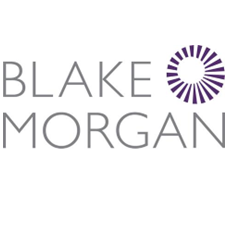Virtual interviews have become a standard part of the recruitment process, especially in the legal sector. Whether you’re applying for a role in private practice or in-house, mastering the art of online interviews is essential for success.
Legal Blogs
How to Succeed at a Virtual Interview

How to Approach an Interview:
- Applying the basic set of principles (often referred to as the five Ps) set out below.
- Research shows that over 80% of candidates do little or no preparation before an interview. That’s good news for you, if you do the opposite!
- Remember, you should leave your interview confident that you have answered three basic questions:
- Do you have the technical skills and experience to do the job?
- Will you have the right attitude and commitment to the job?
- Will you fit in?
1) Preparation
- Research the firm - websites are often a great starting point, but try to get a behind-the-scenes perspective using your recruitment consultant and/or own network.
- Find out about the people interviewing you - many websites have partner profiles, so make sure you know their names, their positions at the firm and the type of work they are involved in. An easy jumping off point is to check them out on LinkedIn.
- Familiarise yourself with the job spec if there is one - what are they looking for? If there is no job spec, your recruitment consultant may have spoken to someone in the team about the role or should be able to do some digging in to what the firm wants. Knowing this will give you the best chance to persuade the firm that you meet their needs.
- Confirm the format of the interview – what platform are they going to use – Microsoft Teams, Zoom, or something else? Will there be any psychometric tests or technical exercises to complete before or after the video interview? Definitely check you canlog on before the meeting goes ahead to address any potential technical issues.
- Top tip - we’d never advocate preparing answers to questions to roll out word for word, but it may be wise to prepare a brief career overview in response to that popular kick-off question: “Tell me something about yourself”. If it does come up, you are off to a flying start, and will be set up for the remainder of the interview. Once drafted, test it out in front of another person, a pet, or even a mirror to make it feel more natural!
- Is a 2nd interview expected and how can you get the opportunity to ‘meet’ team members in these difficult times and get an overall ‘feel’ for the department and the firm?
- A positive to lockdown and virtual interviews is that you can have notes to easily refer to in a subtle manner.
2) Practise
- Gathering your thoughts on likely questions beforehand is only going to enhance your overall presentation.
- Consider the points you want to make, and how to structure your responses to best sell your strengths against their requirements.
Specific points to consider include:
- Know your CV inside out - be ready to expand on any decisions you’ve made regarding study or previous career moves and be confident talking about your key achievements.
- Strengths and weaknesses - analyse and assess them honestly. Be prepared to answer questions on them in a way that illustrates your skills and how you could contribute to the firm.
- Reasons for leaving - be positive about where you currently are. Focus more on what you hope the move will achieve, rather than what you are keen to leave behind.
- Career aims - both short and long term, and how they relate to the position on offer.
- Remember that it’s a two-way street – think through what you want from the meetingand what questions you need to ask. Interviewers often feedback on questions and they should be treated as an assessed part of the interview.
3) Punctuality
- Confirm the online platform that the interviewer is using and test it at your home at least one day before, so that you know everything will work in advance of the interview.
- Avoid a rush – allow yourself plenty of time to get settled and everything set up correctly – your camera positioned appropriately so you are not too close but not too far either, a glass of water, your CV and any notes you might need.
- Ensure that everyone at your home knows that you are having an interview to avoid any distracting or embarrassing disturbances. If applicable to you, avoid interviews at school home times to reduce the chances of children barging in and make sure the pets are contained elsewhere in the house.
- Make sure you know roughly how long the interview will last - you don’t want to be fretting about your next meeting or call.
4) Presentation - First impressions count
Research has shown that 70% of a first impression is based on appearance and body language. At an interview you are marketing a product - yourself. This still applies when online and although you may be used to working from home and possibly looking a lot more casual than when office working, remember this is the first time the interviewer will have seen/met you.
- Dress to impress - ask yourself “Do I look the part?” You never get a second chance to make a first impression, even on a virtual interview!
- Ensure that there is an appropriate backdrop to your interview – currently with so many working from home, this has often already been considered, but think what the room around you reveals about you as a person. Stuffed animal heads on the wall orbeach holiday snaps in the background are probably not ideal!
- Be confident but courteous, and remember to smile.
5) Performance
- Are you sitting comfortably? Practise a comfortable sitting position beforehand that feels natural. Relaxed shoulders present an open and confident manner.
- Turn off notifications on your device so you are not distracted.
- Be aware of your voice - pace, tone and intonation all contribute to your success in an interview. If the role demands energy and enthusiasm, show some.
- Be yourself - personality and culture fit is important so act naturally.
- Listen carefully and think before you speak - pauses seem longer than they are, especially online, but the interviewers would rather hear the best answer you can provide, not the quickest. Avoid the temptation to fill gaps in the conversation and let the interviewer lead the process.
- Make your answers clear and concise - always use positive language. You’re in control of what you want your interviewer to know, so take responsibility for answering the three key questions from the start. Focus on selling yourself throughout.
- Maintain your focus and stay positive throughout. It’s far easier to drift off or get distracted in a virtual interview than it is sat face-to-face with someone. Do not get discouraged if a particular point doesn’t go as well as hoped. Your interviewers will form opinions over the whole interview rather than one question.
- Although you’ve thought about the salary side of things, always allow your interviewer to initiate discussions. This often won’t occur during the first interview. Negotiate as late as possible: you will have most influence when the interviewer has decided they want to offer you the job. I would advise using a recruitment consultant to do this for you to avoid awkward conversations with a future manager/employer.
- Ask questions - as well as completing the picture from your perspective, this shows you have done your research, and demonstrates a genuine interest in the firm.
- Remember - It is an online business meeting, not an exam.
What Next? Useful Post-Interview Pointers.
- Make notes immediately afterwards on what you thought went well, what didn’t, and what you’d do differently next time.
- Pass your interview feedback on to your recruitment consultant.
- If you are not using a recruitment agency, follow up with a brief thank you e-mail, reiterating your interest in the position. If you have any additional information which might help the firm make a decision in your favour, offer it here.
If we can assist you and you might appreciate a no obligations discussion, please get in touch with one of our dedicated consultants,















